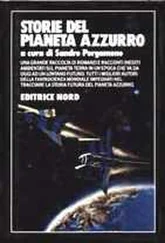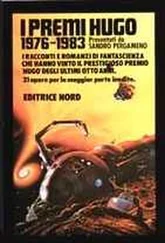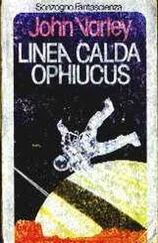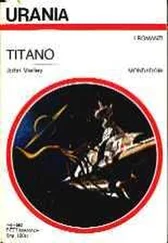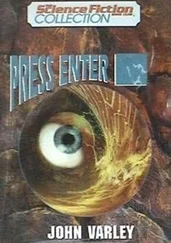John Varley - Blue Champagne
Здесь есть возможность читать онлайн «John Varley - Blue Champagne» весь текст электронной книги совершенно бесплатно (целиком полную версию без сокращений). В некоторых случаях можно слушать аудио, скачать через торрент в формате fb2 и присутствует краткое содержание. Жанр: Фантастика и фэнтези, на английском языке. Описание произведения, (предисловие) а так же отзывы посетителей доступны на портале библиотеки ЛибКат.
- Название:Blue Champagne
- Автор:
- Жанр:
- Год:неизвестен
- ISBN:нет данных
- Рейтинг книги:4 / 5. Голосов: 1
-
Избранное:Добавить в избранное
- Отзывы:
-
Ваша оценка:
- 80
- 1
- 2
- 3
- 4
- 5
Blue Champagne: краткое содержание, описание и аннотация
Предлагаем к чтению аннотацию, описание, краткое содержание или предисловие (зависит от того, что написал сам автор книги «Blue Champagne»). Если вы не нашли необходимую информацию о книге — напишите в комментариях, мы постараемся отыскать её.
Blue Champagne — читать онлайн бесплатно полную книгу (весь текст) целиком
Ниже представлен текст книги, разбитый по страницам. Система сохранения места последней прочитанной страницы, позволяет с удобством читать онлайн бесплатно книгу «Blue Champagne», без необходимости каждый раз заново искать на чём Вы остановились. Поставьте закладку, и сможете в любой момент перейти на страницу, на которой закончили чтение.
Интервал:
Закладка:
Now it was Hoeffer's turn to be speechless. There were a few badly suppressed giggles; Bach quickly silenced them with her most ferocious glare, while giving thanks no one would ever know how close she had come to bursting into laughter.
"Never mind that," Hoeffer said. "My name is Hoeffer. Would you go get your parents? We need to talk to them."
"No," said the girl. "And no."
"What's that?"
"No, I won't get them," the girl clarified, "and no, you don't need to talk to them."
Hoeffer had little experience dealing with children.
"Now, please be reasonable," he began, in a wheedling tone. "We're trying to help you, after all. We have to talk to your parents, to find out more about your situation. After that, we're going to help get you out of there."
"I want to talk to the lady," the girl said.
"She's not here."
"I think you're lying. She talked to me just a minute ago."
"I'm in charge."
"In charge of what?"
"Just in charge. Now, go get your parents!"
They all watched as she got up and moved closer to the camera. All they could see at first was her feet. Then water began to splash on the lens.
Nothing could stop the laughter this time, as Charlie urinated on the camera.
For three hours Bach watched the screens. Every time the girl passed the prime camera Bach called out to her. She had thought about it carefully. Bach, like Hoeffer, did not know a lot about children.
She consulted briefly with the child psychologist on Hoeffer's team and the two of them outlined a tentative game plan. The guy seemed to know what he was talking about and, even better, his suggestions agreed with what Bach's common sense told her should work.
So she never said anything that might sound like an order. While Hoeffer seethed in the background, Bach spoke quietly and reasonably every time the child showed up. "I'm still here," she would say.
"We could talk," was a gentle suggestion. "You want to play?"
She longed to use one line the psychologist suggested, one that would put Bach and the child on the same team, so to speak. The line was "The idiot's gone. You want to talk now?"
Eventually the girl began glancing at the camera. She had a different dog every time she came by. At first Bach didn't realize this, as they were almost completely identical. Then she noticed they came in slightly different sizes.
"That's a beautiful dog," she said. The girl looked up, then started away. "I'd like to have a dog like that. What's its name?"
"This is Madam's Sweet Brown Sideburns. Say hi, Brownie." The dog yipped. "Sit up for mommy, Brownie. Now roll over. Stand tall. Now go in a circle, Brownie, that's a good doggy, walk on your hind legs. Now jump, Brownie. Jump, jump, jump!" The dog did exactly as he was told, leaping into the air and turning a flip each time the girl commanded it. Then he sat down, pink tongue hanging out, eyes riveted on his master.
"I'm impressed," Bach said, and it was the literal truth. Like other citizens of Luna, Bach had never seen a wild animal, had never owned a pet, knew animals only from the municipal zoo, where care was taken not to interfere with natural behaviors. She had had no idea animals could be so smart, and no inkling of how much work had gone into the exhibition she had just seen.
"It's nothing," the girl said. "You should see his father. Is this Anna-Louise again?"
"Yes, it is. What's your name?"
"Charlie. You ask a lot of questions."
"I guess I do. I just want to—"
"I'd like to ask some questions, too."
"All right. Go ahead."
"I have six of them, to start off with. One, why should I call you Anna-Louise? Two, why should I excuse you? Three, what is the wrong foot? Four... but that's not a question, really, since you already proved you can make a statement, if you wish, by doing so. Four, why are you trying to help me?
Five, why do you want to see my parents?"
It took Bach a moment to realize that these were the questions Charlie had asked in their first, maddening conversation, questions she had not gotten answers for. And they were in their original order.
And they didn't make a hell of a lot of sense.
But the child psychologist was making motions with his hands, and nodding his encouragement to Bach, so she started in.
"You should call me Anna-Louise because... it's my first name, and friends call each other by their first names."
"Are we friends?"
"Well, I'd like to be your friend."
"Why?"
"Look, you don't have to call me Anna-Louise if you don't want to."
"I don't mind. Do I have to be your friend?"
"Not if you don't want to."
"Why should I want to?"
And it went on like that. Each question spawned a dozen more, and a further dozen sprang from each of those. Bach had figured to get Charlie's six—make that five—questions out of the way quickly, then get to the important things. She soon began to think she'd never answer even the first question.
She was involved in a long and awkward explanation of friendship, going over the ground for the tenth time, when words appeared at the bottom of her screen.
Pur your foot down, they said. She glanced up at the child psychologist. He was nodding, but making quieting gestures with his hands. "But gently," the man whispered.
Right, Bach thought. Put your foot down. And get off on the wrong foot again.
"That's enough of that," Bach said abruptly.
"Why?" asked Charlie.
"Because I'm tired of that. I want to do something else."
"All right," Charlie said. Bach saw Hoeffer waving frantically, just out of camera range.
"Uh... Captain Hoeffer is still here. He'd like to talk to you."
"That's just too bad for him. I don't want to talk to him."
Good for you, Bach thought. But Hoeffer was still waving.
"Why not? He's not so bad." Bach felt ill, but avoided showing it.
"He lied to me. He said you'd gone away."
"Well, he's in charge here, so—"
"I'm warning you," Charlie said, and waited a dramatic moment, shaking her finger at the screen.
"You put that poo-poo-head back on, and I won't come in ever again."
Bach looked helplessly at Hoeffer, who at last nodded.
"I want to talk about dogs," Charlie announced.
So that's what they did for the next hour. Bach was thankful she had studied up on the subject when the dead puppy first appeared. Even so, there was no doubt as to who was the authority. Charlie knew everything there was to know about dogs. And of all the experts Hoeffer had called in, not one could tell Bach anything about the goddamn animals. She wrote a note and handed it to Steiner, who went off to find a zoologist.
Finally Bach was able to steer the conversation around to Charlie's parents.
"My father is dead," Charlie admitted.
"I'm sorry," Bach said. "When did he die?"
"Oh, a long time ago. He was a spaceship pilot, and one day he went off in his spaceship and never came back." For a moment she looked far away. Then she shrugged. "I was real young."
Fantasy, the psychologist wrote at the bottom of her screen, but Bach had already figured that out.
Since Charlie had to have been born many years after the Charlie Station Plague, her father could not have flown any spaceships.
"What about your mother?"
Charlie was silent for a long time, and Bach began to wonder if she was losing contact with her. At last, she looked up.
"You want to talk to my mother?"
"I'd like that very much."
"Okay. But that's all for today. I've got work to do. You've already put me way behind."
"Just bring your mother here, and I'll talk to her, and you can do your work."
"No. I can't do that. But I'll take you to her. Then I'll work, and I'll talk to you tomorrow."
Bach started to protest that tomorrow was not soon enough, but Charlie was not listening. The camera was picked up, and the picture bounced around as she carried it with her. All Bach could see was a very unsteady upside-down view of the corridor.
Читать дальшеИнтервал:
Закладка:
Похожие книги на «Blue Champagne»
Представляем Вашему вниманию похожие книги на «Blue Champagne» списком для выбора. Мы отобрали схожую по названию и смыслу литературу в надежде предоставить читателям больше вариантов отыскать новые, интересные, ещё непрочитанные произведения.
Обсуждение, отзывы о книге «Blue Champagne» и просто собственные мнения читателей. Оставьте ваши комментарии, напишите, что Вы думаете о произведении, его смысле или главных героях. Укажите что конкретно понравилось, а что нет, и почему Вы так считаете.

